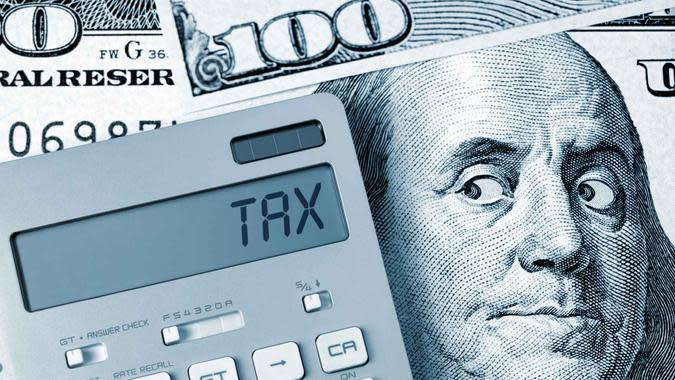Retirement Savings: 8 Expenses Retirees Can’t Afford To Fall Behind On

Retirement is often seen as the reward for a lifetime of hard work or even a satisfying finish line to whichever career path you went down. It should be spent relaxing, traveling and spoiling your grandchildren.
Trending Now: 7 Bills You Never Have To Pay When You Retire
For You: 4 Genius Things All Wealthy People Do With Their Money
However, managing finances once you reach retirement age is crucial to ensure that these years are truly golden. While saving adequately before retiring is essential, it’s equally important to budget your expenses and not lose focus on spending wisely.

Quick Take: Retirement Savings
What you spend in retirement is directly related to what kind of savings plan you have now. No matter your annual income, setting aside what you can in the short term will only benefit you in the long run to reach your retirement savings goals. Here are some retirement savings tips and takeaways:
Along with employer contributions, saving roughly at least 15% of your income per year is recommended by most financial advisors. Stick to your retirement plan by saving now and keep it up. For example, by age 35 if you have about twice your annual income saved you are off to a great start.
Evaluate what you’ll need in retirement financially such as housing costs, long-term care insurance and what taxes you’ll need to be able to cover.
Make sure you are maxing out your employer matches for any retirement savings such as 401(k) so you aren’t leaving money on the table.
Diversify your investment strategy by putting money into other IRAs, real estate or high-yield savings options.
Have an emergency fund as it is as important in retirement as during working years. Unexpected expenses, such as medical emergencies, car repairs, or sudden home repairs, can arise. Having a cushion can prevent these surprises from derailing your financial stability.
Don’t forget to budget for enjoying yourself. Retirement should be a good time, and budgeting for hobbies, travel, and other leisure activities is crucial. However, balancing these discretionary expenses with essential needs is key to maintaining a sustainable retirement lifestyle.
There are certain things you can’t retire from, such as paying taxes or shopping for groceries. These expenditures should be baked into your budget so you don’t fall behind, because if you do the debt spiral could become quite overwhelming. Here are eight expenses retirees should never overlook or fall behind on.
Find Out: 10 Things Boomers Should Always Buy in Retirement
Explore More: Retirement 2024: These Are the 7 Worst Places To Retire in South Carolina

1. Healthcare Costs and Insurance
If you are 65 or older, you are probably aware that long-term care costs typically rise with age, making this one of the most significant financial concerns for retirees. Medicare provides a foundation, but it doesn’t cover everything, especially if you need chronic care for varying health reasons. Supplemental insurance, prescription drugs, and out-of-pocket costs can add up quickly, but paying for preventative care consistently may save you from bigger medical bills later.
In addition to health insurance, retirees need to consider other insurance types: life, long-term care, and home insurance. Regularly reviewing and adjusting policies can ensure coverage remains adequate without becoming overly burdensome. Neglecting these expenses can lead to inadequate care and financial strain.
Read Next: Retirement Spending: 9 Things Even Spendthrifts Don’t Waste Money On

2. Housing Costs
Whether you own your home outright, have a mortgage, or rent, housing is a substantial and non-negotiable expense. Property taxes, maintenance, and homeowners’ insurance are ongoing costs that need to be factored into your retirement budget. You may even want to consider downsizing or moving to a retirement community, as the lower costs could better suit your financial needs.
Homes also require regular maintenance and occasional repairs, like fixing a leaky roof or updating aging plumbing. Setting aside a budget for these inevitable expenses is wise to avoid sudden financial strain. Consistently maintaining your home by paying for small repairs will also help reduce bigger and more costly projects later.

3. Utilities
Utilities such as electricity, water, heating, and internet services are essential and continuous expenses. Efficient management and budgeting for these recurring costs are necessary to avoid disruptions in essential services. It may help to allocate funds for this by breaking your fixed income into percentages, for example, the 50/30/23 budgeting rule has you put 50% of your monthly income toward necessities, 30% toward wants and 20% toward savings.

4. Food and Groceries
Nutrition is crucial for maintaining health in retirement, and eating healthy can also help prevent more expensive medical costs down the line. While dining out might be reduced, grocery costs can still be significant. Planning meals, using discounts, and shopping wisely can help manage these necessary expenses.
Learn More: Suze Orman: Why Even Big Retirement Savers Are at Risk

5. Income Taxes and Property Taxes
Retirees must stay vigilant about tax obligations as no one outruns the tax man. Social Security benefits, pensions, and withdrawals from retirement accounts can be taxable. Planning for these taxes with a financial advisor can prevent unexpected liabilities such as property tax increases.

6. Transportation and Car Maintenance
Even in retirement, transportation costs can be significant. Whether it’s maintaining a personal vehicle, using public transportation, or occasional travel, these expenses need to be anticipated. Keeping a reliable means of transportation is essential for independence and quality of life.
Staying diligent with your car maintenance can also stave larger bills later. Don’t put off small repairs as those can lead to ones you may not be able to afford down the road.
Find Out: Retirement Planning: Here’s How Much Money You Actually Need To Age in Place

7. Debt Repayment
Carrying debt into retirement can be particularly challenging. Prioritizing the repayment of any remaining mortgage, credit card debt, or loans is essential to prevent financial stress and maintain a stable budget. When you are on a limited income taking on more debt could lead to uncomfortable financial strain.

8. Gifts and Donations
Many retirees enjoy giving gifts to family or donating to charitable causes. While these are meaningful, it’s important to budget for them. Overgiving can deplete savings faster than anticipated, so it’s wise to plan these expenses thoughtfully.
Final Take To GO
The bottom line is that managing retirement finances requires careful planning and regular review of your budget and expenses. By staying proactive and mindful of critical expense categories such as taxes, health care and insurance, retirees can help ensure a financially secure and fulfilling retirement.
It’s always a good idea to consult with a financial planner to tailor your plan to your specific needs and goals, ensuring that you can enjoy your retirement without financial worry. No matter if you are decades away from retirement or you will retire this year, your retirement savings, and how you spend it, is ever-evolving.
More From GOBankingRates
I've Secretly Put Us in Serious Debt: How To Break the News to Your Spouse
This is The Single Most Overlooked Tool for Becoming Debt-Free
This article originally appeared on GOBankingRates.com: Retirement Savings: 8 Expenses Retirees Can’t Afford To Fall Behind On
